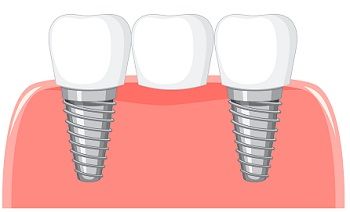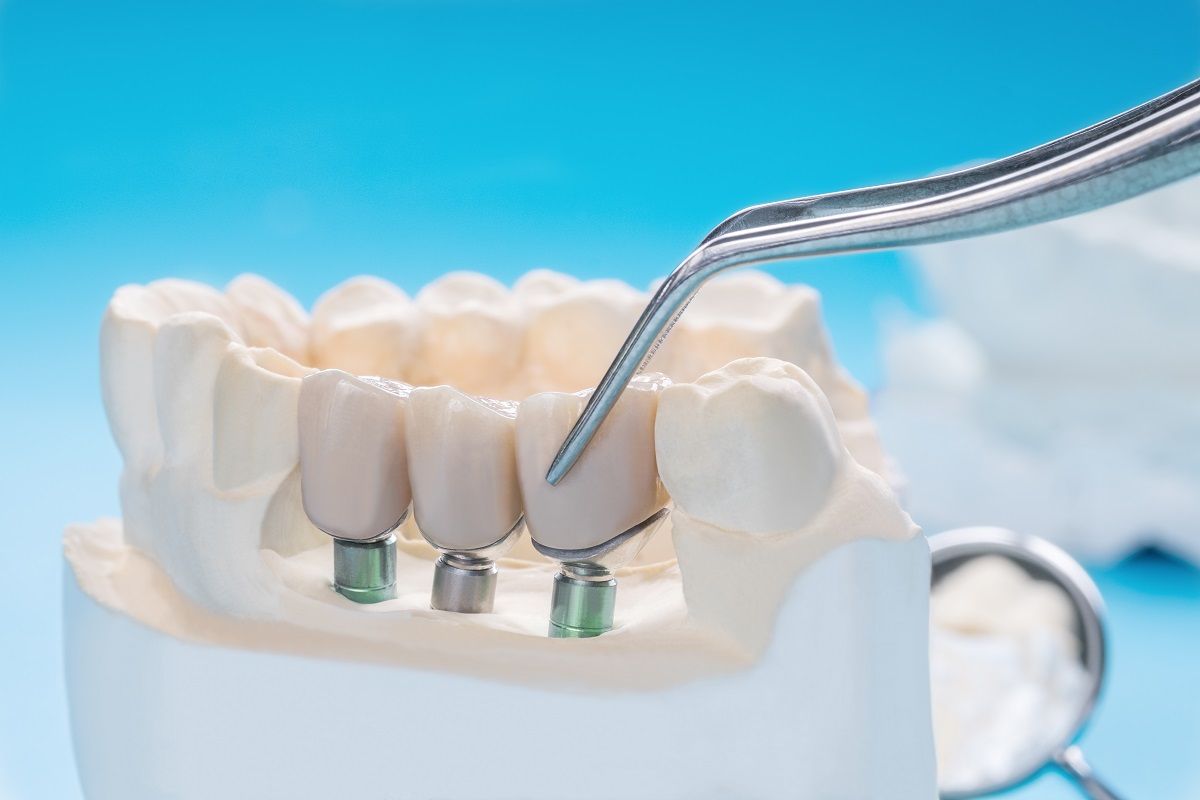Dental bridges are a popular and effective solution for replacing missing teeth and restoring both function and aesthetics to your smile. These dental restorations bridge the gap left by one or more missing teeth, providing support and stability to the surrounding teeth. If you have recently received a dental bridge or are considering this treatment option, it’s essential to understand how long they can last and how to maintain them properly.
“How long do dental bridges last?” is a common question asked by individuals seeking long-term solutions for their oral health. While the longevity of a dental bridge can differ depending on several factors, including the materials used, oral hygiene habits, and general dental care, with proper care and maintenance, a well-crafted dental bridge can last for many years.
In this blog post, we will explore the average lifespan of dental bridges and discuss the various factors that can influence their durability. We will also provide valuable tips on maintaining your dental bridge to ensure its longevity and functionality. By following these recommendations, you can take proactive steps to protect your investment and enjoy the benefits of a beautiful smile.
Understanding Dental Bridges and Their Lifespan
A dental bridge is a custom-made prosthesis consisting of one or more artificial teeth, known as pontics, anchored by dental crowns placed on adjacent natural teeth or dental implants. This bridge structure ensures stability, support, and durability, giving you the confidence to chew, speak, and smile without discomfort or self-consciousness.
With proper care and maintenance, a well-crafted dental bridge can last significantly, typically 5 to 15 years or even longer. The lifespan of dental bridges can vary based on several factors that influence their durability. Understanding these factors empowers you to take proactive steps in preserving your dental bridge for the long term.
- Oral Hygiene Habits: Maintaining excellent oral hygiene is crucial for the longevity of dental bridges. Routinely brushing, flossing, and rinsing with an antimicrobial mouthwash can prevent plaque buildup and gum disease, which can compromise the health of the supporting teeth and lead to bridge failure.

- Material Selection: The materials used in constructing dental bridges significantly determine their lifespan. High-quality materials such as porcelain, ceramic, or zirconia offer exceptional strength, durability, and natural aesthetics. Your dentist can guide you in selecting the most suitable material based on your needs.
- Bite Force and Habits: Excessive or irregular bite forces from habits like teeth grinding (bruxism) can exert undue stress on dental bridges, potentially causing damage or premature wear. Using a customized nightguard or seeking treatment for bruxism can help protect your dental bridge and prolong its lifespan.
- General Dental Care: Regular dental check-ups and professional cleanings are essential for maintaining oral health and detecting any issues with your dental bridge at an early stage. Your dentist can identify signs of wear, decay, or damage and recommend timely maintenance or replacement if necessary.
“Proper care and regular dental check-ups are the keys to extending the lifespan of your dental bridge and preserving its functionality.”
Signs That Your Dental Bridge May Need Maintenance or Replacement
While dental bridges are durable, they are not invincible. It’s crucial to be aware of signs indicating that your dental bridge may require maintenance or replacement to address any issues promptly.
- Discomfort or Pain: Persistent pain or discomfort around the dental bridge area may indicate underlying problems such as an ill-fitting bridge, gum infection, or decay. Your dentist should evaluate these issues to determine the appropriate course of action.
- Sensitivity or Mobility: If you experience increased sensitivity or notice a slight movement of your dental bridge, it could indicate a loose or damaged bridge. Seeking professional attention is vital to prevent further complications and potential tooth loss.
- Visible Damage: Cracks, chips, or fractures in the dental bridge structure are signs that maintenance or replacement may be necessary. These damages can compromise your bridge’s functionality, aesthetics, and longevity.
- Recurring Gum Inflammation: Inflamed or swollen gums around the dental bridge area may indicate gum disease or poor oral hygiene. Regular check-ups with your dentist can help identify and address these issues to maintain the health of your dental bridge.
Understanding the lifespan of dental bridges and recognizing signs that indicate maintenance or replacement needs is crucial in ensuring the longevity of your restoration. By practicing good oral hygiene, selecting high-quality materials, and seeking professional dental care, you can maximize the durability and functionality of your dental bridge, allowing you to enjoy a confident smile for years.
Tips for Expanding the Lifespan of Your Dental Bridge
- Practice excellent oral hygiene: Brush your teeth at least twice daily using a soft bristle toothbrush. Pay special attention to cleaning around the dental bridge and along the gumline. Maintain a daily flossing routine, using either traditional floss or specialized floss threaders designed for bridges, to effectively remove plaque and food particles.
- Use a mouthwash: Rinse your mouth with an antimicrobial to help reduce bacteria and maintain a healthy oral environment. Consult with your dentist to determine the most suitable mouthwash for your needs.
- Avoid excessive force on the bridge: Be mindful of activities that may subject your dental bridge to excessive force. Avoid biting on stiff objects like ice, pens, or fingernails, as this can cause damage. If you engage in sports or physical activities, consider using a mouthguard to protect your dental bridge.
- Maintain a balanced diet: Eat a well-balanced diet rich in vitamins and minerals to support oral health. Avoid sticky or chewy foods that can dislodge or damage the dental bridge. If you consume hard or crunchy foods, cut them into smaller, manageable pieces.
- Do not smoke: Smoking increases the possibility of gum disease, which can undermine the stability of the supporting teeth. Quitting smoking benefits your overall health and contributes to the longevity of your dental bridge.

Regular Dental Check-ups: Key to Prolonging the Lifespan of Your Dental Bridge
Regular dental check-ups are crucial for maintaining the health and longevity of your dental bridge. Here’s why these check-ups are vital and how they contribute to extending the lifespan of your restoration.
- Early detection of issues: During dental check-ups, your dentist will carefully examine your dental bridge, surrounding teeth, and gums. It will allow early detection of any signs of damage, decay, or gum disease that may affect the bridge’s stability and lifespan. Prompt intervention can prevent further complications and potentially save your bridge.
- Professional cleaning: Professional cleanings remove plaque buildup and tartar and protect you against gum disease, which may otherwise compromise the longevity of your bridge.
- Adjustment and maintenance: Dental check-ups allow your dentist to evaluate the fit and function of your dental bridge. If any adjustments or repairs are necessary, your dentist can address them promptly. Regular maintenance ensures that your dental bridge remains stable and comfortable.
- Personalized oral hygiene guidance: Your dentist can provide specific recommendations on oral hygiene practices tailored to your dental bridge. These include the most effective brushing techniques, appropriate flossing methods, and specialized tools or aids for bridge care.
Final Thoughts
While the average life duration of a dental bridge typically ranges from 5 to 15 years, it’s important to note that individual experiences may vary. Several factors influence the durability of a dental bridge, including oral hygiene habits, material quality, bite forces and habits, and general dental care. By taking proactive measures and adopting proper maintenance practices, you can increase the longevity of your dental bridge.
Contact your Pinole dentist, Azadeh Hosseini, DDS, or Ghazal Hosseini, DDS, at Top Pinole Dental to know how Long Dental Bridges Last.
Resource:
Pros And Cons Of Dental Bridges
*This media/content or any other on this website does not prescribe, recommend, or prevent any treatment or procedure. Therefore, we highly recommend that you get the advice of a qualified dentist or other medical practitioners regarding your specific dental condition.*
1500 Tara Hills Dr., Suite 104A, Pinole, CA 94564
Monday – Saturday 8:00 AM to 5:00 PM
